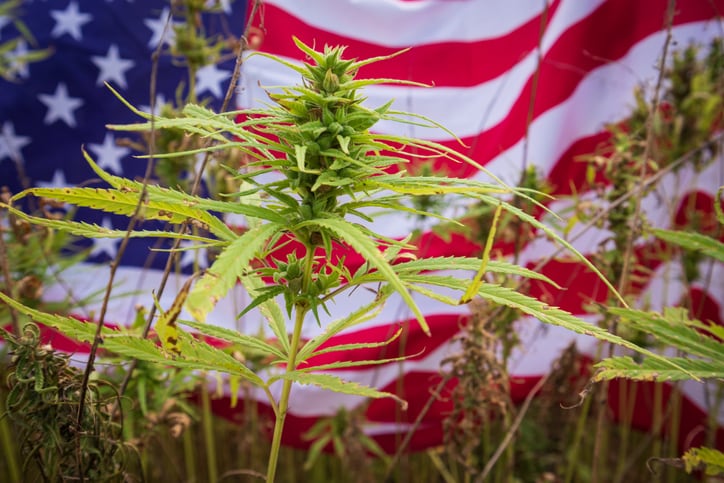The bill, which was originally introduced in September in the 116th Congress, and is now back on the table in the first session of the 117th Congress. Designated as HR 841, the bill directs the FDA to use its authority and resources to set a clear regulatory framework for hemp and hemp derived CBD and assure consumer protection.
The bill, which has long enjoyed widespread support from hemp and dietary supplement stakeholders, was welcomed by Scott Melville, President & CEO, Consumer Healthcare Products Association (CHPA), who said: “We’re encouraged that this legislation was re-introduced so early in the new Congress and hope it remains a priority for lawmakers given the intense consumer demand and commercial interest in CBD-containing products. The continued lack of regulatory clarity along with insufficient oversight around hemp and hemp derived CBD has led to bad actors entering the marketplace, exposing consumers to potentially unsafe products that may lack consistency in product quality.
“This bipartisan legislation would be an important step forward and is consistent with CHPA’s 2019 citizen petition calling on FDA to utilize its existing authority and establish a lawful regulatory pathway for responsible manufacturers to bring dietary supplements containing CBD to market.”
“Critical”
Julia Gustafson, VP of government relations for the Council for Responsible Nutrition (CRN), called the legislation “critical”, while adding the it would “promote a safer and stronger dietary supplement marketplace, as it will direct FDA to provide a legal pathway to market for dietary supplements containing hemp-derived cannabidiol (CBD), while still assuring FDA’s stringent requirements for manufacturing, labeling and marketing of other dietary supplements apply to these new ingredients.
“CRN especially appreciates that the legislation includes CBD along with other hemp-derived cannabinoids for potential inclusion in dietary supplements.”
A joint statement from a coalition of hemp and dietary supplement industry trade groups, retail and farm organizations, which included CHPA and CRN, noted: “… as a July 2020 FDA report to Congress revealed, without a clear regulatory framework, many products are being marketed without appropriate safeguards, and are misleading consumers with false label claims.
“Passing this legislation would ensure that hemp-derived CBD and other non-intoxicating hemp ingredients could be lawfully marketed as dietary supplements. It would also require responsible product manufacturers to comply with the Dietary Supplement Health and Education Act of 1994 (DSHEA), the existing framework that regulates dietary supplements. This would assure consumers that the products they purchase are safe, properly labeled and manufacturers in compliance with good manufacturing practices (GMPs) for dietary supplements.”
Jonathan Miller, General Counsel for the US Hemp Roundtable and spokesperson for the coalition, added: “The organizations working collectively to establish a trusted marketplace for ingestible hemp-derived ingredients applaud the bipartisan approach on this legislation.”
Michael McGuffin, President of the American Herbal Products Association (AHPA), commented: “There remains an absence of substantive progress on FDA’s reported attention to creating a lawful pathway for CBD, and a similar lack of clarification from the agency that simple hemp products, such as tinctures and extracts, should be regulated the same as other herbal supplements. This legislation will fill those gaps, and we see it as important for ensuring that consumers will be able to find hemp and CBD products that are clearly subject to FDA’s enforcement of the robust regulations that apply to all other herbal supplements.
"The bill is also aligned with the position AHPA first adopted almost two years ago to recommend that manufacturers and marketers of hemp and CBD dietary supplements comply with all of the federal regulations that apply to such operations for other supplement products.”
NPA: “The bill still fails to set a safe level”
When the bill was first introduced in 2020, the Natural Products Association (NPA) rejected the legislation, stating in September that the bill fails to set a safe level of daily consumption and would do more to undermine public trust in the safety of supplement products and do nothing to promote public health.
Daniel Fabricant, PhD, NPA’s President and CEO, told NutraIngredients-USA Thursday that the association’s position has not changed, and they stand by their comments from 2020.
“Schrader and Griffith received technical assistance from FDA on the bill last congress and FDA made it pretty clear that for CBD consumer products to come to market there had to be some sort of safe daily exposure levels (for populations),” said Dr Fabricant.
Indeed, a statement released on January 8, 2021 by then-FDA commissioner Dr Stephen Hahn and principal deputy commissioner Dr Amy Abernethy noted that while CBD is now widely available, we “still have a limited understanding of the safety profile of CBD and many other cannabis-derived compounds."
Specifically, they added: “We still don’t have clear answers to important questions such as what adverse reactions may be associated with CBD products and what risks are associated with the long-term use of CBD products. Better data in these areas are needed for the FDA and other public health agencies to make informed, science-based decisions that impact public health.”
Existing efforts generally, “are not adequate to fill the outstanding knowledge gaps,” they claimed, noting that longitudinal studies, which provide data about the health of subjects over an extended period of time, are needed to understand long-term health effects of CBD use.
Meanwhile, they added, “observational studies that are too small or that do not include techniques to ensure data quality or methodological rigor are of limited use for public health decision making.”





